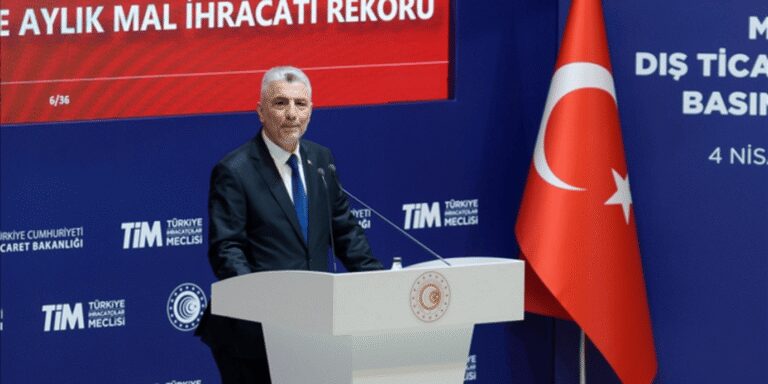🎧 Listen to This Article
Ankara eyes Washington as Europe and Asia brace for trade fallout
ISTANBUL — In the chaos of tariffs, a quiet opportunity emerges.
While Europe recoils and China recalibrates, Turkey sees a lane opening into the American market—thanks to an unlikely assist from former President Donald Trump.
Despite a historically rocky relationship between President Recep Tayyip Erdoğan and Trump—marked by sanctions, incendiary threats, and a famously undiplomatic letter—recent US tariff decisions are giving Turkish exporters a moment to shine.
Under Trump’s new policy, most nations now face a 10% tariff rate, down from the initial surge in protectionist measures. While China bears the brunt of the crackdown, Turkey has been relatively spared, positioning it as a potential trade bridge between East and West.
From Adversary to Ally?
Trump, never one to shy from contradiction, recently remarked:
“I have great relations with a man named Erdoğan… I like him, and he likes me.”
Yet history says otherwise.
In 2019, Trump threatened to “totally destroy and obliterate” the Turkish economy if Ankara defied U.S. military wishes in Syria. Since then, the Turkish lira has collapsed—from ₺5.79 to the dollar in 2019 to ₺38.06 today. But as global trade shifts, so too do diplomatic dynamics.
Now, Turkish goods face the same tariff rate as most US trading partners, giving the country a rare edge amid rising global protectionism.
Turkish Exporters: This Is Our Window
Business leaders in Turkey are not treating Trump’s tariffs as a threat—but as an opening.
“We must make good use of this advantage,” said Bülent Aymen, deputy president of the Association of Mediterranean Exporters. “The intensification of the tariff war enables Turkey to gain market share in the U.S. across chemicals, cars, furniture and electronics.”
Trade data backs that optimism:
- Turkey’s exports to the U.S. hit $16.3 billion in 2024, up from $14.8 billion in 2023
- The U.S. is now Turkey’s second-largest trade partner, after Germany
- Turkish exports to the U.S. have risen by 16% annually over the past five years
China’s Loss, Turkey’s Gain?
With Chinese, Vietnamese, and Cambodian exporters likely to suffer under U.S. tariffs, Turkish businesses are eyeing sectors like textiles, electronics, and auto parts where they can step in.
“We need to act quickly,” urged Seref Fayat, textile commissioner at the Union of Chambers and Commodity Exchanges. “This is a very important opportunity.”
Fayat proposes exploring limited tariff-free trade with the U.S.—a bold but potentially strategic move to lock in Turkey’s advantage before the geopolitical winds shift again.
Challenges: Will Turkey Be Ready?
Not everyone is as bullish.
“I think exporters in Turkey are not sufficiently prepared,” cautioned Murat Akyüz, former president of the Istanbul Chemicals Exporters Association. “We’ve missed similar chances before because we didn’t have a sustainable trade strategy.”
Key structural gaps remain:
- Few logistics hubs or warehousing in the U.S.
- Insufficient government coordination on trade promotion
- No clear positioning strategy to target newly available U.S. market segments
A Strategic Pivot: Turkey as a Production Hub?
Beyond exports, Turkey is angling for another role: a manufacturing base for Asia.
With tariffs slamming Chinese exports, Turkey is courting companies to relocate production to its soil—offering proximity to Europe, skilled labor, and access to U.S. markets with fewer restrictions.
“We must explain to these countries the advantages of manufacturing in Turkey,” said Akyüz. “We have the infrastructure—and the Ministry of Trade needs to act now.”
This could reshape Turkey’s global economic role, not just as a seller, but as a critical node in global supply chains.
A Trade Realignment in Motion
As Trump’s tariffs redraw trade lines, Turkey finds itself uniquely positioned—not by luck, but by geography, capacity, and the cracks left by bigger powers.
Whether Ankara can convert this moment into sustained economic influence depends on swift diplomacy, agile policy, and the readiness of its export ecosystem.
For now, an opportunity born of disruption beckons.
For further details, clarification, contributions, or any concerns regarding this article, please contact us at editorial@tax.news. We value your feedback and are committed to providing accurate and timely information. Please note that our privacy policy will handle all inquiries



